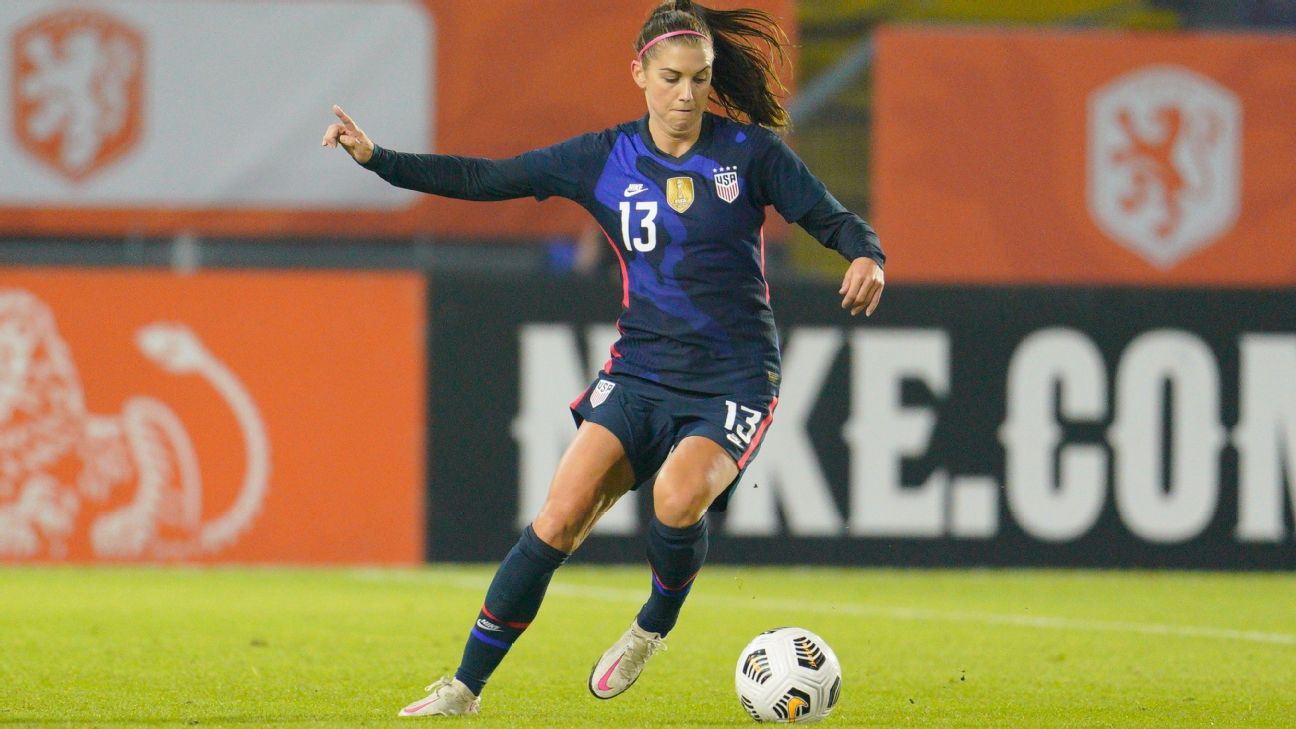U.S. women’s national team manager Vlatko Andonovski said star forward Alex Morgan is approaching top form ahead of the upcoming SheBelieves Cup, despite missing out on the team’s January camp due to a bout with COVID-19.
Morgan, 31, her daughter Charlie and husband Servando Carrasco all tested positive for the coronavirus over Christmas. She hasn’t played much football since giving birth to Charlie, her first child, in May of 2020 but Andonovski said on Wednesday she has impressed upon her return to the USWNT.
– Foudy: U.S. should dominate SheBelieves Cup; Olympics next?
– Morgan: I was fairly sick with COVID-19, took a while to recover
“Every day, she’s done better and better and literally progressing from training to training,” he said about Morgan. “So she’s very close to, or moving in a direction to be the best version of herself. That makes us very excited because we know if she’s at her best, she can be deadly.”
The U.S. will face Canada on in its SheBelieves Cup opener on Thursday, with Canada looking for its first win over the USWNT since 2001.
The two long-time rivals will face off in the day’s second match following the opener that features Brazil and Argentina. But Canada will be missing some mainstays. Striker Christine Sinclair and midfielder Diane Matheson are both out due to injury while defender Kadeisha Buchanan, forward Jordan Huitema, and defender Ashley Lawrence weren’t released by their clubs.
Canada will have Jessie Fleming, Janine Beckie and Allysha Chapman, all of whom have over 70 caps, but given the aforementioned absences, Andonovski said he there could be some changes to his tactical approach for the match.
“Our strategy may change in terms of how we’re going to defend now, since [Sinclair] is not there, or how we’re going to attack since Buchanan is not there,” he said. “So there’s certain tweaks that we may have in our strategy, but the approach is not going to change from the mental standpoint.”
1:47
Megan Rapinoe lauds the USWNT’s depth in the squad from top to bottom, especially with the younger players’ impact.
Andonovski added: “Canada comes in with so much determination and battle when they play the U.S. women’s national team. I don’t think it’s matched by any other team that we’ve faced before, so we’re definitely going to expect that intensity.”
The tournament features a compressed schedule of three games in seven days, with the U.S. playing Brazil on Sunday and Argentina the following Thursday. Andonovski said he would take a “mixed approach” in terms of allocating playing time.
“Some players, we are going to test how they are going to react in three consecutive games in a short period of time because it resembles the group stage in the Olympics,” he said. “But with some players, we’re going to use it as an evaluating platform, so we can make decisions going forward.”
The schedule might also have an influence on the U.S. team’s tactics, in that it might choose to press less than they have in the past, though Andonovski notes that is not his side’s preferred approach.
“Sometimes we think about it. Do we do we want to dial it back and how much we want to dial it back?” he said, “It’s not as easy just because of the mentality of the players. We’re not used to sitting back and defending. We’re not used to waiting for teams to attack us. We want to attack when we defend them and when we’re not in possession.
“So I’m sure there’ll be times [during] the games where we feel like we can dial it back…We’re gonna try to do that, and we’re gonna try to control the tempo while we’re in possession and a little bit less when we’re out of possession.”
